Soundtracks of cult games: pestilence, utopia and ice axes
Today there are many reviews telling about the supposedly most legendary, epochal, etc. soundtracks for games. At the same time, each of the reviewers (bloggers, journalists, etc.) tries to leave their own view of things in history. Often the authors of reviews of this kind are infantilely categorical, childishly categorical and not infrequently suffer from bad taste.
Meanwhile, among all this diverse content, works are starting to get lost, which, in my opinion, really deserve attention. In order to present his point of view, it was decided to create a cycle of publications about the most significant compositions in the gaming industry.

Not without reason I'll start with the game developed in Russia in the studio Ice Pick Lodge. It is this studio and its director Nikolay Dybovsky who treat games as a new kind of art. Ice Pick Lodge is a team of enthusiasts who are not inclined to perceive games as a commercial product only and understand the tasks of the gaming industry much more widely. Such an approach certainly affects the result, in particular, on the soundtracks. Under the cut in detail about creating music for the original game “Mor. Utopia ”(Pathologic) and its modern rethinking“ Mor ”(Pathologic 2 - release is expected in 2018).
The first or, as they say, the original “Mor” came out back in 2005, and immediately gained a reputation as a unique game. Despite the flaws in the animation and the primitive graphics, even for that time, the game plot was able to captivate many, and the game received many awards. The genre was hardly defined as a life simulator (or, more precisely, survival) with elements of a classic action game and an impressive quest component.
The plot of the game unfolded in a small steppe town, whose population is facing extinction from an incurable disease. The player is required to survive in a steppe epidemic and try to change the course of events. Fallout 3, which appeared much later, will very much resemble the first “Mor” by the developed quest element in combination with the action component (although, undoubtedly, the genres are different).
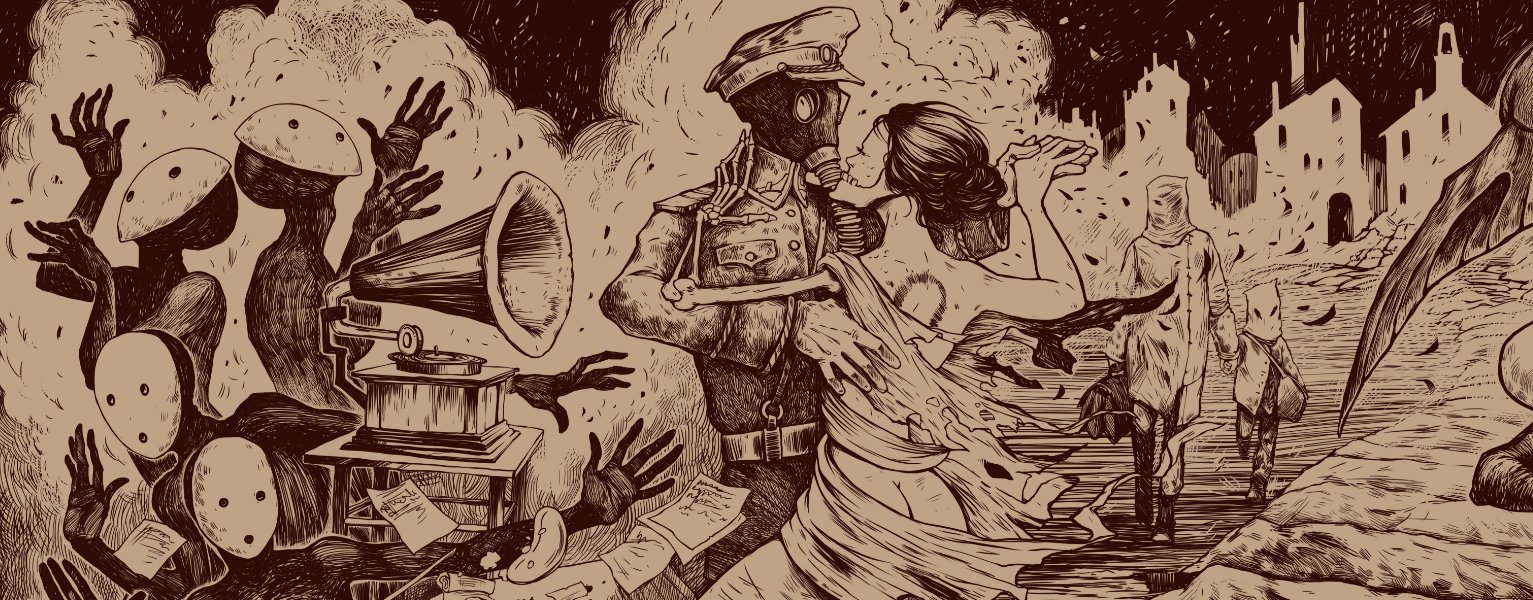
All those who evaluated the game in the distant 2005 - 2006 years noted a well-developed atmospheric gaming space. The user’s immersion into the reality created by developers was largely due to music. The composer of the game was Andriesh Ghandrabur.
In 2014, the studio announced the development of a deep remake of “Mora” based on the old plot. The soundtrack for the new game was written by the folk group Theodor Bastard and the staff composer of ice axes Vasily Kashnikov, better known as Mushroomer. In 2016, a peculiar prequel “Mor Utopia. At the marble nest ”. The release of a full-fledged game is scheduled for the 2018th year.
In 2004, when developing the first game, the need for musical accompaniment became urgent, Nikolai Dybovsky and Ayrat Zakirov began searching for a composer who would suit them and be able to realize the right atmosphere for a unique survival simulator. At the same time, Andrei (Andriesh) Ghandrabur - the author of outstanding musical works and dj (in the good sense of the word) learns from his friend Fyodor Voskresensky from the Tinta folk group that he is looking for a composer with a very unusual project. So begins the collaboration of a young experimenter and ambitious developers. It should be noted that the composer found on the word of mouth was fully justified the hopes of the ice ax.
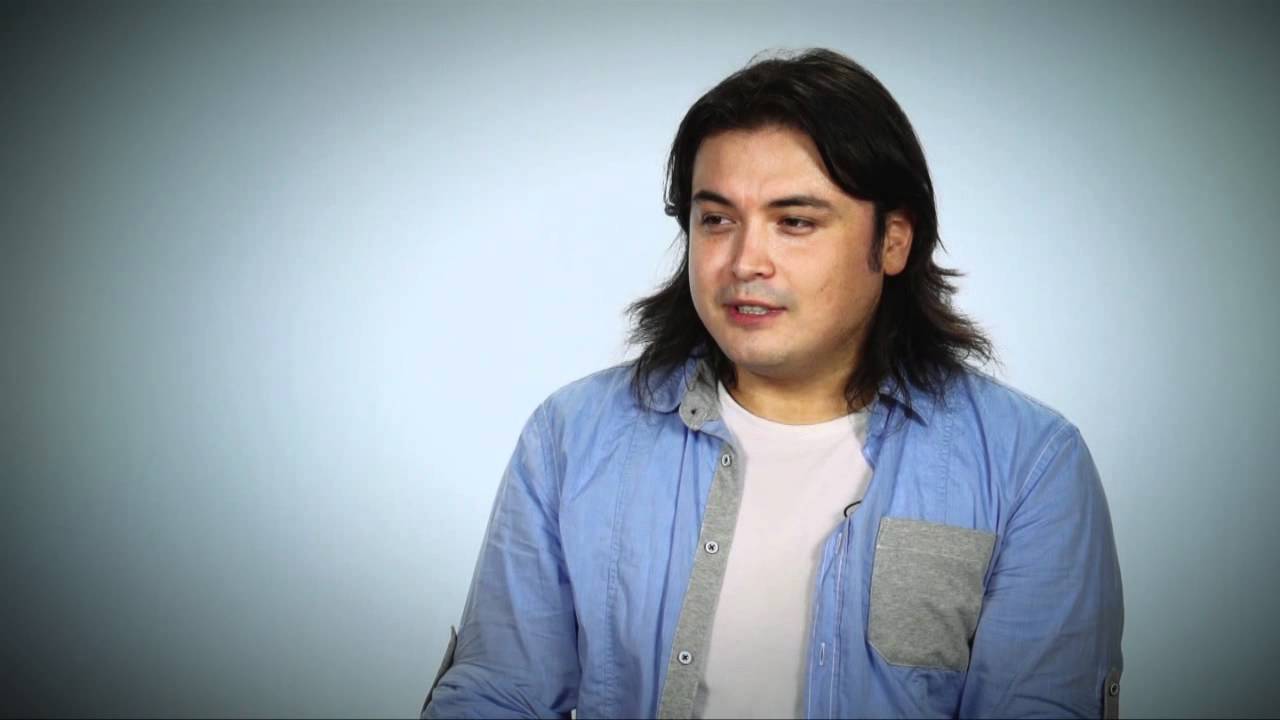
Andrei (Andriesh) Ghandrabur (photo VK)
Having become acquainted, the “holy” trinity of the conceptualist, composer and developer begins work. As it was common at the beginning of the 2000s, the material is recordedin conditions as close as possible to those in battle , in the so-called home studio. In fact, only two active Yamaha MSP5 monitors, a 4-octave Evolution MIDI keyboard, Audigy 2 audio cards, a PC of average configuration, and AKG K271 headphones were used from the hardware. Everything else is popular at the time Reason and virtual synths.
Main theme
Starting cooperation with Andriesh, Dybowski & Co. put a strict restriction on the use of “deliberately electronic sounds”, which seriously hampered his work. In an interview, Ghandrabur noted that the end result was the fruit of hard and not always smooth work, and also that mutual understanding between him and Dybowski about music was not achieved immediately.
Dybowski was personally involved in the selection (filtering) of the compositions, which was important, since they were the authors of the concept and this or that composition is better than anyone imagined whether the composition is suitable for the stage or not. The technical part was occupied by Airat Zakirov, thanks to his efforts, every district in the city, every house, steppe, as well as individual plot scenes were voiced by the corresponding tracks.
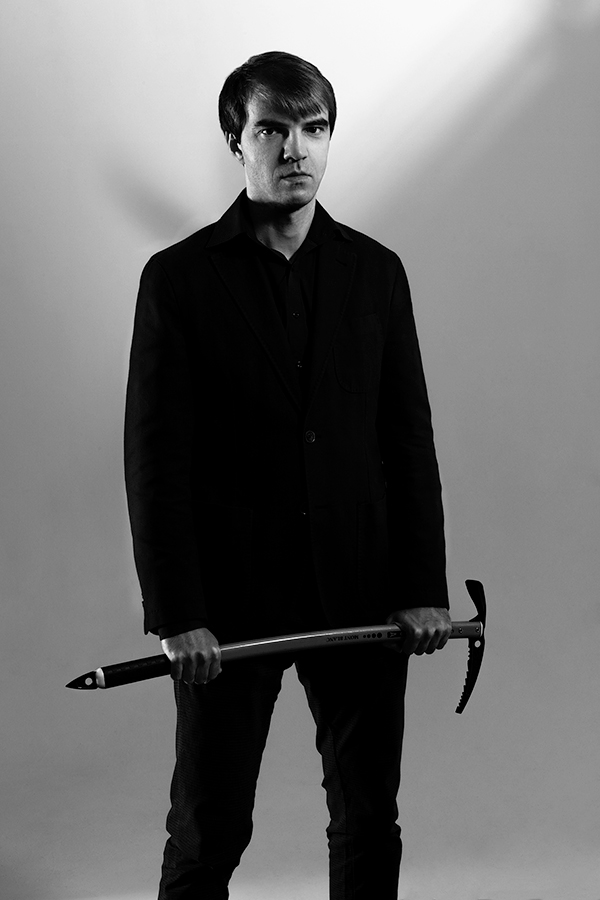
Ayrat Zakirov
Before the beginning of aggressive actions, the music changes (becomes alarming, rhythmic), acting as a factor creating a kind of tension. For 2005, this approach can be considered advanced. It is important to note that the music in the game changed without changing the rhythm and one track smoothly changed to another. This achievement should also be recorded at the expense of Zakirova and Ghandrabura.
It makes no sense to describe the style of music created by Ghandrabur, one can only note the influence of such styles as trip-hop, drum`n`base, ambient, folk, ethno.
It is better to listen, and even better to play "More" and listen:
It is known that the original soundtrack “Mor. Utopia ”was never released as a standalone release. It can also be noted that the game was created at that wonderful time when it was possible not to draw up contracts for the transfer of copyright. As far as I know, the sound track belongs to the creator to this day, neither ice axes, nor the publisher of the first “Mora” - “Buka”, are not the copyright holders, and Andries is quite calm about copying and publishing these works.
By the way, Andriesh Ghandrabur's music was also used in the fundraising campaign for a modern remake of the game.
Unlike the original, the soundtrack for the remake (well, or a new look at the old story) “Mora” was created by people who have been looking for a long time. According to the staff composer and sound designer of Vasiliy’s (Mushroomer’s) Kashnikov ice axes, he was impressed by Theodor Bastard in the middle of 2000s, and since then he has been visited by the idea of engaging the band at Ice-Pick Lodge.
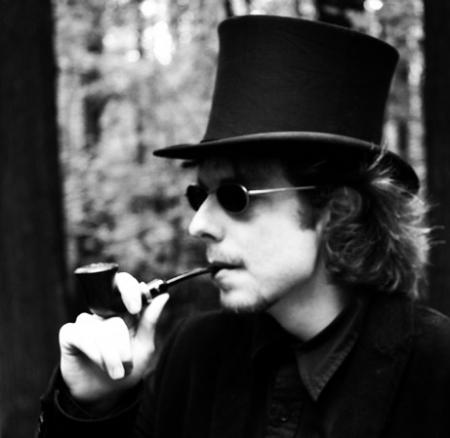
Mushroomer
In addition, on the studio forum there were reports that the work of the group in a strange way correlated with the projects of ice axes.
It is also known that even during the development of the original game, Nikolay Dybovsky was inspired by the works of Theodor Bastard, in particular, by the video for the song “Emptiness”.
When it was time to “rethink” on the basis of the good old script or, simply, a thorough and deep remake (everything changes, starting from aesthetics, user interface, dynamic features and ending with an impressive part of game mechanics), the ice axes remembered Theodor Bastard, and those in their queue given consent.
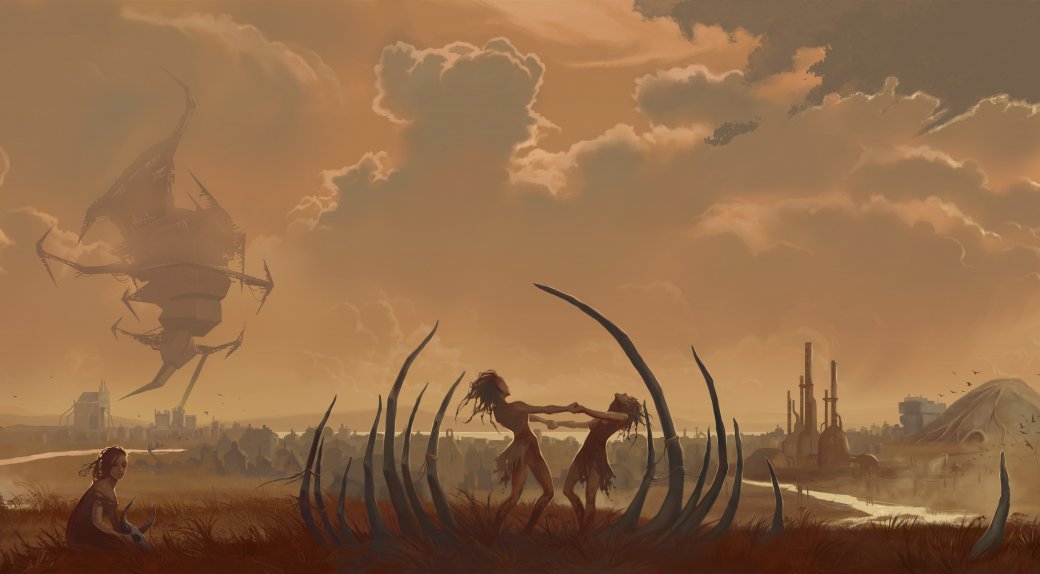
Unlike the composer of the first time, Theodor Bastard received full creative freedom without any restrictions. One of the first in the public domain appeared composition Darkness, and a little later The Temple Of Lost Childhood, which, judging from the name, will sound in the location “Polyhedron”. The Temple Of Lost Childhood sounds in the demo final “Mor. Utopia. At the marble nest ”, and the composition Darkness in one of the game trailers.
The trailer in which the song sounds Darkness
The composition gives an idea of the expressive means used and suggests that Theodor Bastard and Ice Pick Lodge have become a very organic tandem. while recording the album both electronic and live instruments were used, some of which Fedor Svoloch did on his own. Fiery female vocals also organically fit into the universe created by ice axes.
Theodor Bastard - Mourning Of The Gone
Naturally, it was not without mystical polyphony, terrifying.
Theodor Bastard - Disappearing (Pathologic 2 OST)
As a result of the fruitful and rather long collaboration, Theodor Bastard presented tracks for a new game in the ost-album with the predictable name Utopia. The founder and composer of the project, known under the pseudonym Fedor the Bastard, even ventured immodestly to call Utopia an album opening a new musical direction.
Anyway, the album is very impressive, whole, as always with this team. Theodor Bastard presented a colorful, original, well-written and detailed material in a compositional and harmonious way. In this case, everything, in my subjective opinion, he perfectly conveys the mood of the game and is able to immerse the listener in the right atmosphere.
I do not detract from the merits of the composer Andriesha Handrabur, whose works organically fit into the original game and in many ways created her mood. However, they can rather be called musical accompaniment, since they have to a certain extent been left unfinished. The fact that Theodor Bastard was created for a new game, on the contrary, is a complete and complete work. Interestingly, despite the significant difference in style, they can be quite organically combined in one playlist. And this, in turn, speaks of a kind of continuity.
Taste tastes is a deeply personal matter, but, in my firm conviction, a creative approach to creating a game always involves a high-quality soundtrack. It is not excluded that not everyone will be able to understand or accept the style in which the creators of the soundtracks for the original game and the remake worked, but, meanwhile, it was music that was one of the factors that made this game a cult one.
The experience of Dybowski and his studio shows that the game and its individual components can indeed be a genuine work of art. I understand that many such games are perceived solely as an unnecessary arthouse or difficult to understand sur, but the development of the industry, and the expansion of the boundaries of the phenomenon itself, is directly connected with this approach. Moreover, using the example of conceptual games, one can see how important such an element as music is for the gameplay.
Jeans
Our catalog contains a wide range of headphones and other products for gamers . In addition, we offer a variety of positions for professional musicians , composers and sound engineers.
Meanwhile, among all this diverse content, works are starting to get lost, which, in my opinion, really deserve attention. In order to present his point of view, it was decided to create a cycle of publications about the most significant compositions in the gaming industry.

Not without reason I'll start with the game developed in Russia in the studio Ice Pick Lodge. It is this studio and its director Nikolay Dybovsky who treat games as a new kind of art. Ice Pick Lodge is a team of enthusiasts who are not inclined to perceive games as a commercial product only and understand the tasks of the gaming industry much more widely. Such an approach certainly affects the result, in particular, on the soundtracks. Under the cut in detail about creating music for the original game “Mor. Utopia ”(Pathologic) and its modern rethinking“ Mor ”(Pathologic 2 - release is expected in 2018).
A few words about “Mor. Utopia
The first or, as they say, the original “Mor” came out back in 2005, and immediately gained a reputation as a unique game. Despite the flaws in the animation and the primitive graphics, even for that time, the game plot was able to captivate many, and the game received many awards. The genre was hardly defined as a life simulator (or, more precisely, survival) with elements of a classic action game and an impressive quest component.
The plot of the game unfolded in a small steppe town, whose population is facing extinction from an incurable disease. The player is required to survive in a steppe epidemic and try to change the course of events. Fallout 3, which appeared much later, will very much resemble the first “Mor” by the developed quest element in combination with the action component (although, undoubtedly, the genres are different).

All those who evaluated the game in the distant 2005 - 2006 years noted a well-developed atmospheric gaming space. The user’s immersion into the reality created by developers was largely due to music. The composer of the game was Andriesh Ghandrabur.
In 2014, the studio announced the development of a deep remake of “Mora” based on the old plot. The soundtrack for the new game was written by the folk group Theodor Bastard and the staff composer of ice axes Vasily Kashnikov, better known as Mushroomer. In 2016, a peculiar prequel “Mor Utopia. At the marble nest ”. The release of a full-fledged game is scheduled for the 2018th year.
The will of the case or how the soundtrack of the first “Mora” appeared
In 2004, when developing the first game, the need for musical accompaniment became urgent, Nikolai Dybovsky and Ayrat Zakirov began searching for a composer who would suit them and be able to realize the right atmosphere for a unique survival simulator. At the same time, Andrei (Andriesh) Ghandrabur - the author of outstanding musical works and dj (in the good sense of the word) learns from his friend Fyodor Voskresensky from the Tinta folk group that he is looking for a composer with a very unusual project. So begins the collaboration of a young experimenter and ambitious developers. It should be noted that the composer found on the word of mouth was fully justified the hopes of the ice ax.

Andrei (Andriesh) Ghandrabur (photo VK)
Having become acquainted, the “holy” trinity of the conceptualist, composer and developer begins work. As it was common at the beginning of the 2000s, the material is recorded
Main theme
Starting cooperation with Andriesh, Dybowski & Co. put a strict restriction on the use of “deliberately electronic sounds”, which seriously hampered his work. In an interview, Ghandrabur noted that the end result was the fruit of hard and not always smooth work, and also that mutual understanding between him and Dybowski about music was not achieved immediately.
Dybowski was personally involved in the selection (filtering) of the compositions, which was important, since they were the authors of the concept and this or that composition is better than anyone imagined whether the composition is suitable for the stage or not. The technical part was occupied by Airat Zakirov, thanks to his efforts, every district in the city, every house, steppe, as well as individual plot scenes were voiced by the corresponding tracks.

Ayrat Zakirov
Before the beginning of aggressive actions, the music changes (becomes alarming, rhythmic), acting as a factor creating a kind of tension. For 2005, this approach can be considered advanced. It is important to note that the music in the game changed without changing the rhythm and one track smoothly changed to another. This achievement should also be recorded at the expense of Zakirova and Ghandrabura.
It makes no sense to describe the style of music created by Ghandrabur, one can only note the influence of such styles as trip-hop, drum`n`base, ambient, folk, ethno.
It is better to listen, and even better to play "More" and listen:
It is known that the original soundtrack “Mor. Utopia ”was never released as a standalone release. It can also be noted that the game was created at that wonderful time when it was possible not to draw up contracts for the transfer of copyright. As far as I know, the sound track belongs to the creator to this day, neither ice axes, nor the publisher of the first “Mora” - “Buka”, are not the copyright holders, and Andries is quite calm about copying and publishing these works.
By the way, Andriesh Ghandrabur's music was also used in the fundraising campaign for a modern remake of the game.
Atmosphere of a rethought epidemic
Unlike the original, the soundtrack for the remake (well, or a new look at the old story) “Mora” was created by people who have been looking for a long time. According to the staff composer and sound designer of Vasiliy’s (Mushroomer’s) Kashnikov ice axes, he was impressed by Theodor Bastard in the middle of 2000s, and since then he has been visited by the idea of engaging the band at Ice-Pick Lodge.

Mushroomer
In addition, on the studio forum there were reports that the work of the group in a strange way correlated with the projects of ice axes.
It is also known that even during the development of the original game, Nikolay Dybovsky was inspired by the works of Theodor Bastard, in particular, by the video for the song “Emptiness”.
When it was time to “rethink” on the basis of the good old script or, simply, a thorough and deep remake (everything changes, starting from aesthetics, user interface, dynamic features and ending with an impressive part of game mechanics), the ice axes remembered Theodor Bastard, and those in their queue given consent.

Unlike the composer of the first time, Theodor Bastard received full creative freedom without any restrictions. One of the first in the public domain appeared composition Darkness, and a little later The Temple Of Lost Childhood, which, judging from the name, will sound in the location “Polyhedron”. The Temple Of Lost Childhood sounds in the demo final “Mor. Utopia. At the marble nest ”, and the composition Darkness in one of the game trailers.
The trailer in which the song sounds Darkness
The composition gives an idea of the expressive means used and suggests that Theodor Bastard and Ice Pick Lodge have become a very organic tandem. while recording the album both electronic and live instruments were used, some of which Fedor Svoloch did on his own. Fiery female vocals also organically fit into the universe created by ice axes.
Theodor Bastard - Mourning Of The Gone
Naturally, it was not without mystical polyphony, terrifying.
Theodor Bastard - Disappearing (Pathologic 2 OST)
As a result of the fruitful and rather long collaboration, Theodor Bastard presented tracks for a new game in the ost-album with the predictable name Utopia. The founder and composer of the project, known under the pseudonym Fedor the Bastard, even ventured immodestly to call Utopia an album opening a new musical direction.
Anyway, the album is very impressive, whole, as always with this team. Theodor Bastard presented a colorful, original, well-written and detailed material in a compositional and harmonious way. In this case, everything, in my subjective opinion, he perfectly conveys the mood of the game and is able to immerse the listener in the right atmosphere.
I do not detract from the merits of the composer Andriesha Handrabur, whose works organically fit into the original game and in many ways created her mood. However, they can rather be called musical accompaniment, since they have to a certain extent been left unfinished. The fact that Theodor Bastard was created for a new game, on the contrary, is a complete and complete work. Interestingly, despite the significant difference in style, they can be quite organically combined in one playlist. And this, in turn, speaks of a kind of continuity.
The final
Taste tastes is a deeply personal matter, but, in my firm conviction, a creative approach to creating a game always involves a high-quality soundtrack. It is not excluded that not everyone will be able to understand or accept the style in which the creators of the soundtracks for the original game and the remake worked, but, meanwhile, it was music that was one of the factors that made this game a cult one.
The experience of Dybowski and his studio shows that the game and its individual components can indeed be a genuine work of art. I understand that many such games are perceived solely as an unnecessary arthouse or difficult to understand sur, but the development of the industry, and the expansion of the boundaries of the phenomenon itself, is directly connected with this approach. Moreover, using the example of conceptual games, one can see how important such an element as music is for the gameplay.
Jeans
Our catalog contains a wide range of headphones and other products for gamers . In addition, we offer a variety of positions for professional musicians , composers and sound engineers.
All Articles